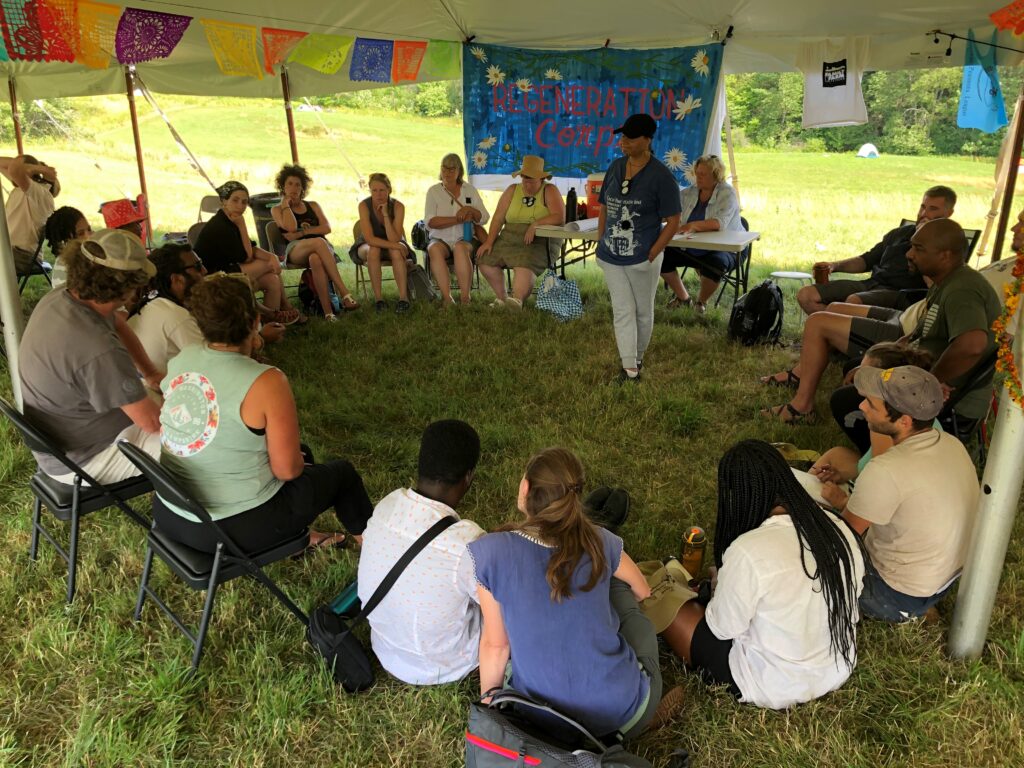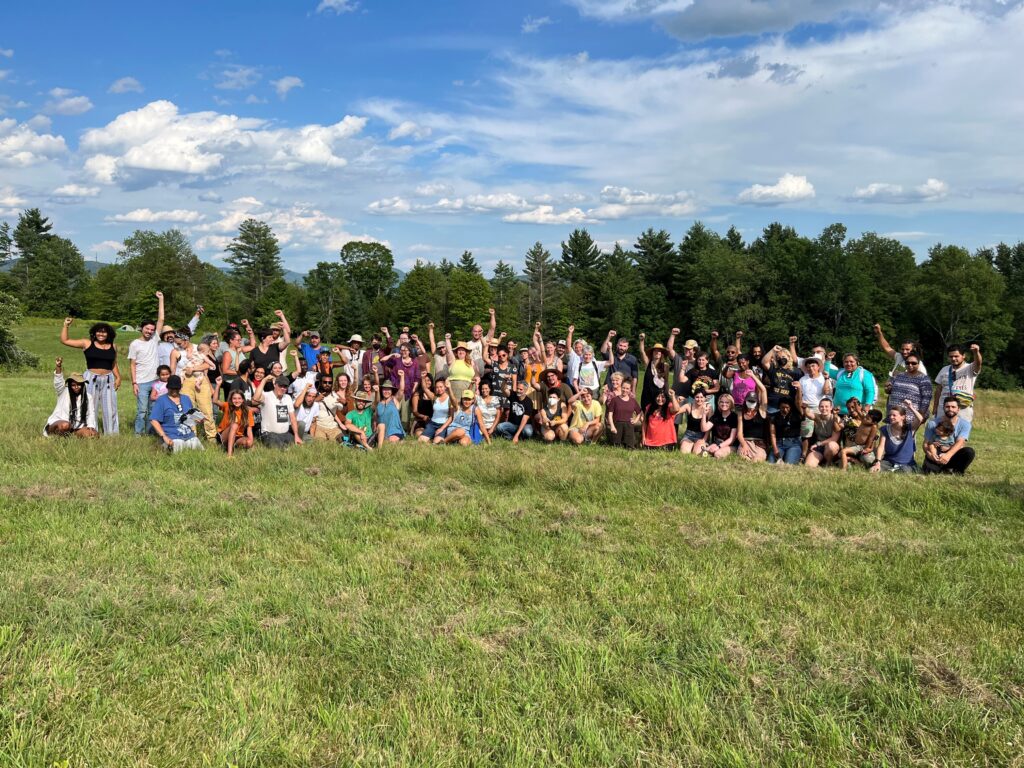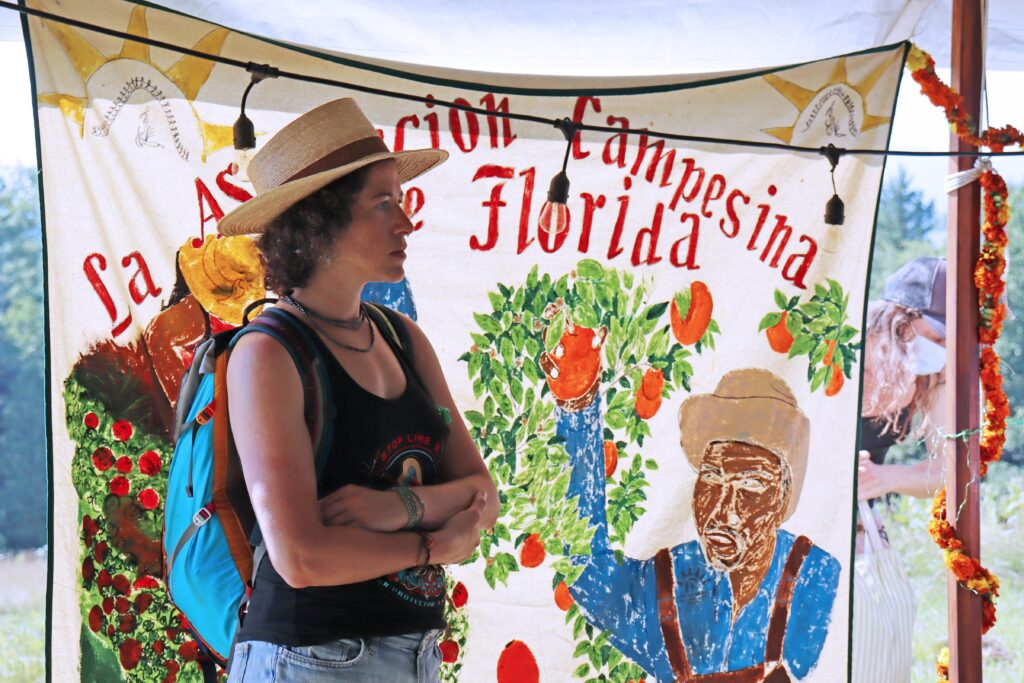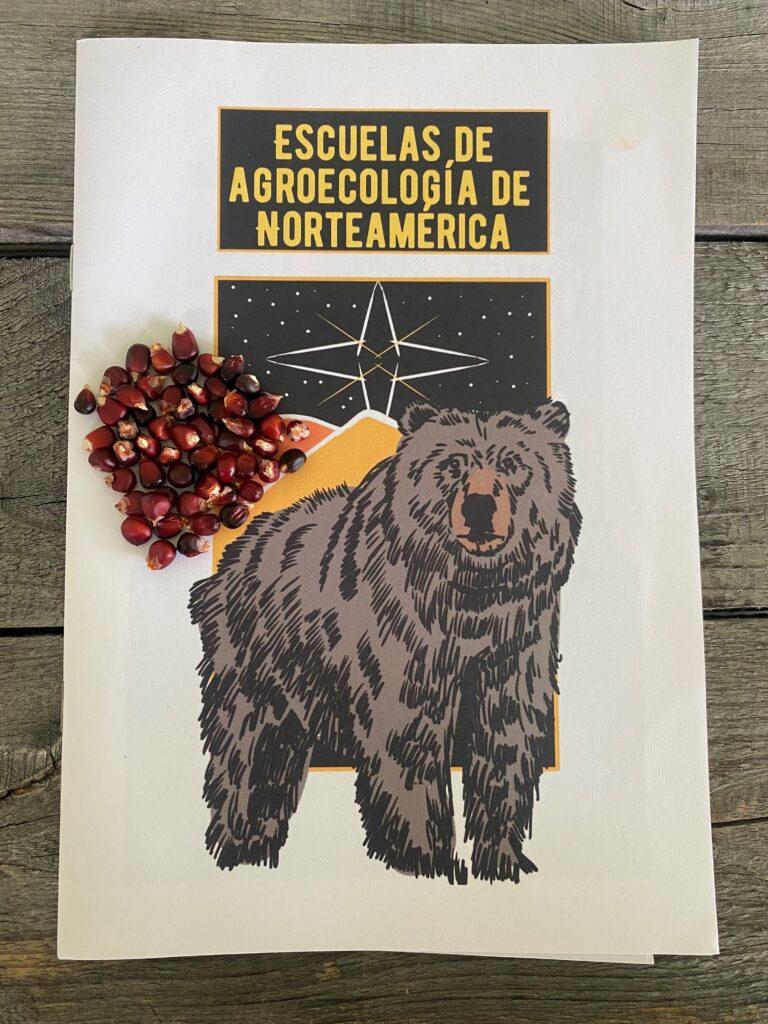
The use of agroecology to confront social injustice was at the center of discussion during this summer’s Each One Teach One Agroecology Encounter, a three-day event convened by the organization Rural Vermont as a celebration of La Vía Campesina’s 30-year anniversary. The Encounter brought together around 140 activists, farmers, and farmworkers from throughout the Americas at the Center for Grassroots Organizing in Marshfield, Vermont. Those attending included local Vermont organic farmers, migrant farm workers and climate migrants; members of the Black agrarian movement from the Southern US; urban farmers and youth of all ages; and delegates from national and international peasant and farmworker organizations (see full list below). The Agroecology and Livelihoods Collaborative (ALC) was on hand to gather stories, support organizers, and facilitate participation by international guests.
The format of the event was part community discussion, part skill-share. Local farmers and community leaders shared workshops on draft animals, the solidarity economy, herbalism, work brigades, printing, and participatory pizza-making. While participants held in common the goal of healthier communities, ecosystems, and societies, the unique perspectives present contributed to dynamic conversations where distinct ways of understanding and using agroecology were explored.

Attendees also looked to the future, envisioning a system of Via Campesina North American schools of agroecology (NASA) where people from grassroots organizations would build skills in both the productive and community-organizing dimensions of agroecology. This approach is inspired by existing and successful models of agroecology and movement-building schools in other regions of La Via Campesina. The schools provide technical agroecological training, popular political education, and traditional ecological knowledge, while being rooted in the specific needs of local communities. The dialogues at the Agroecology Encounter revealed questions about access and audience and, in particular, a demand for educational processes that meet the needs of young people of color who don’t currently have access to farmland. These topics will re-emerge in additional listening sessions planned for the months to come.
The event is part of process that began with a Campesinx-a-Campesinx gathering in 2014 in Florida, which gave rise to around a dozen encounters of the People’s Agroecology Process in the United States, Canada and Puerto Rico between 2014-2020. In 2021, the ALC partnered with the People’s Agroecology Process to offer an advanced course in people’s agroecology – using technology to further enrich the conversation and relationships even when gathering in person wasn’t an option. The ALC engages in movement activities as part of its Participatory Action Research approach and its commitment to transformative collective impact through scholar-activism and long-term, horizontal relationships.
National and International Peasant and Farmworker Organizations Represented at the Encounter: Family Farm Defenders (USA), Small and Heritage Black Farmers & Southeastern African American Farmers’ Organic Network (USA), National Family Farm Coalition (USA), Migrant Justice (USA), Farmworkers Association of Florida (USA), Union Paysanne (Canada), National Farmers Union (Canada), Unión Nacional de Organizaciones Regionales Campesinas Autónomas (Mexico), Unión de Pueblos de Morelos (Mexico), Asociación de Trabajadores del Campo (Nicaragua), Confederación Nacional de Organizaciones Campesinas, Indígenas y Negras (Ecuador), and the Asociación Nacional de Mujeres Rurales e Indígenas (Chile)

